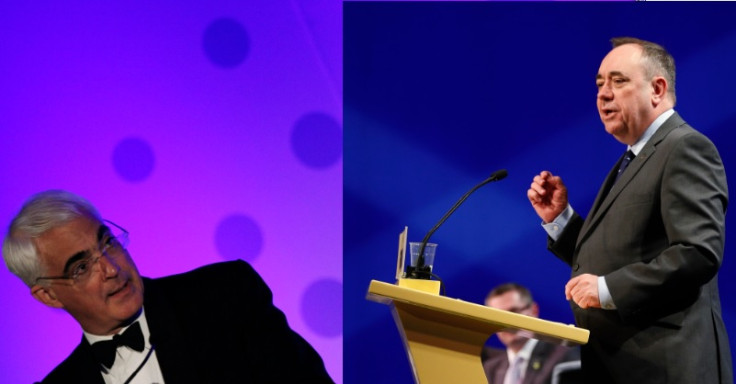Scottish Independence: Alastair Darling and Alex Salmond Sparring Live in TV Debate

Scots will have a chance to hear from campaign leaders as to why they should vote for or against independence as the heads of the "Better Together" campaign and "Yes Scotland" will debate live on TV on 5 August.
SNP leader and First Minister Alex Salmond will detail why the country should sever the 307-year union with England, while Alastair Darling will put the case forward for staying together, in a two-hour long debate.
Salmond had called for Prime Minister David Cameron to go head to head with him, but the Conservative leader declined, championing Darling, the leader of the "No" campaign.
Scottish people will vote in an independence referendum on 18 September, 2014, and will be asked the straight "yes/no" question: "Should Scotland be an independent country?"
Meanwhile, both campaigns have welcomed the debate but said that the heated discussion over independence has already taken place across the UK.
"The referendum debate isn't confined to TV studios. It is taking place in conversations between friends and family across Scotland," said Better Together campaign director Blair McDougall, while also calling for Salmond to provide "straight answers" on the pound, pensions and public services.
"The biggest debate is taking place on the doorsteps, around kitchen tables and in workplaces across the country. And the more people talk about what leaving the UK would mean for our schools and hospitals, the more they are saying no thanks to separation."
"Yes Scotland" CEO Blair Jenkins added: "Viewers will get the chance to hear why decisions made on Scotland's future should be taken here in Scotland.
"Our experience is that most undecided voters choose Yes when they hear both sides of the debate, and therefore we believe the mass TV audience will benefit our positive campaign. We also believe that the No campaign have a problem with both the negativity of their message, and the unpopularity of their messengers."
© Copyright IBTimes 2025. All rights reserved.






















